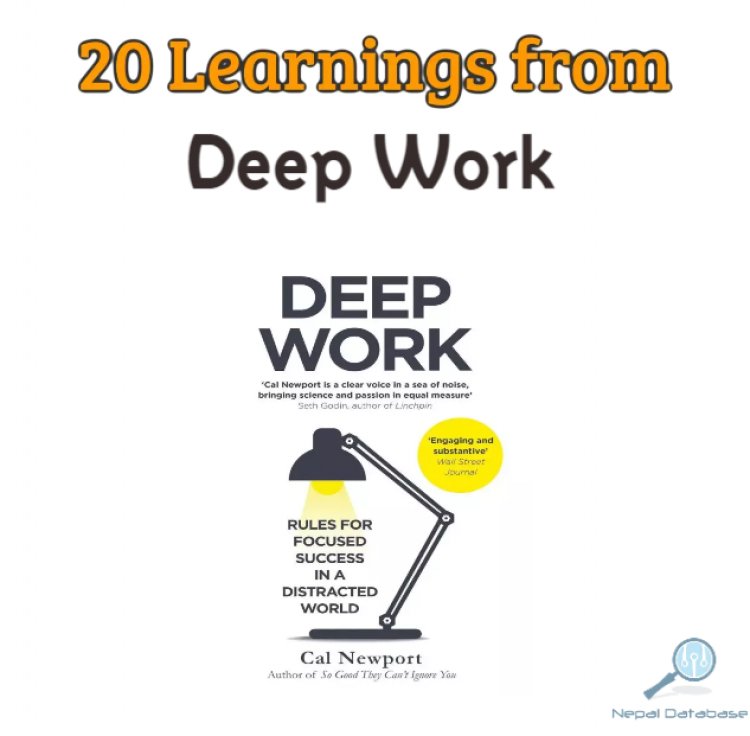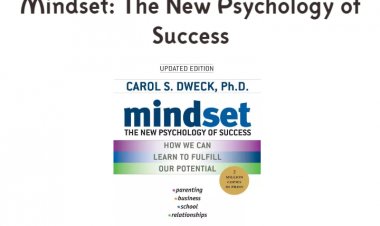20 Essential Learnings from Cal Newport's Deep Work Book
Discover 20 essential learnings from Cal Newport's "Deep Work", including practical strategies for achieving productivity and focus in today's knowledge economy.

"Deep Work" by Cal Newport is a book that emphasizes the importance of cultivating deep work habits to achieve productivity and focus in a knowledge economy. In this book, Newport provides practical strategies for minimizing distractions, setting aside dedicated time for deep work, and avoiding burnout. Here are 20 important learnings from "Deep Work":
- Deep work requires sustained focus without distractions and can produce valuable results.
- Shallow work, which involves interruptions and multitasking, can be detrimental to productivity and creativity.
- Cultivating deep work habits is essential for achieving professional goals in today's knowledge economy.
- Setting aside dedicated time and space for deep work is necessary to avoid distractions and interruptions.
- Engaging in deep work can lead to a state of flow, where time seems to disappear and productivity increases.
- Regular rest and recovery are essential to avoid burnout and maintain focus and productivity.
- Minimizing digital distractions, such as social media and email, is crucial for deep work.
- The ability to focus deeply is a skill that can be developed and improved over time.
- Deliberate practice, or intentional repetition of a task to improve performance, is key to developing deep work skills.
- Deep work requires a clear goal or purpose to guide the focused effort.
- Interruptions during deep work can significantly decrease productivity and focus.
- Cultivating deep work habits requires a deliberate effort to minimize distractions and establish routines.
- Creating a deep work ritual, such as a set of actions to signal the start and end of a deep work session, can be helpful.
- Deep work can be mentally exhausting, and it is important to prioritize rest and recovery.
- Setting specific goals and deadlines for deep work sessions can increase productivity and focus.
- Collaborative work can be beneficial, but it should be balanced with time for deep work.
- Deep work is not just for creative or knowledge-based tasks, but can be applied to any job or field.
- Mindfulness practices, such as meditation, can enhance focus and concentration during deep work.
- The benefits of deep work extend beyond productivity, including improved job satisfaction and well-being.
- Cultivating deep work habits requires a long-term commitment to practicing and improving focus and concentration skills.
"Deep Work" offers valuable insights into the importance of cultivating deep work habits to achieve productivity and focus in today's knowledge economy. By providing practical strategies for minimizing distractions, setting aside dedicated time for deep work, and avoiding burnout, Newport offers a roadmap for those looking to achieve their professional goals. By applying the learnings from this book, individuals can develop the skills necessary to engage in deep work and reap the benefits of sustained focus and productivity.
What's Your Reaction?




































































































